A PANEL DISCUSSION ON
DECOLONIZATION/DECOLONIALITY, PART 6
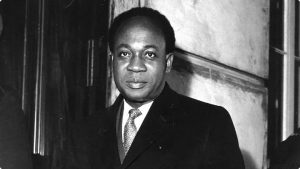
Photo: Kwame Nkrumah (Source: Medium)
Decolonial Thinking and Global Politics
(This is the fourth interview report with a Panel on Decolonization/Decoloniality. For the transcript, see YouTube https://youtube.com/watch?v=WG0wn62xjtc.
In contemporary times, decoloniality discourse boasts a significant bragging right or strength of generating familiar controversies in a manner that underscores its relevance in modern exchanges or conversations. Often, the reactionary protests from anti-decolonial advocates are directed towards repudiating the ideas advanced by decolonial scholars in the belief that its prospects would be clipped. Coupled with the suspicion among some scholars of various social science disciplines extraction, the misconceptions around decoloniality have led to people responding to it with solid aversions.
![]()
Photo: Frantz Fanon (Source: Prabook)
Several critics have protested that the question of decoloniality has partly been answered and its responsibilities undertaken by frontline advocates of decolonization. Meanwhile, the fact remains that decolonization is intimately associated with the eruptions of independence struggles across different colonies, which ultimately climaxed in the internment of the hitherto master-servant relationship that characterized that period. Although the outcome of this concerted movement found expression in the widespread declaration of independence by the European imperialists for these African territories, it becomes a cruel case that the realization of freedom for these countries did not automatically end the indescribable struggles and pains, among many others, Africans were left to experience. The reason is that at the dawn of independence, most African countries had a poor, if not wrong, impression of what independence would bring. Thus, their liberation from the European stranglehold did not translate to emancipation from its mental shackles. As such, decolonization did not translate to the freedom of the colonized people. Instead, it set the stage for the continuation of servitude under the imperial systems. For instance, scholars have contended that the so-called independence given to many African countries was one located, if not confined, in the hands and control of a tiny elite. On their part, many members of this tiny elite have been projected to be mirror images of Western and Eurocentric traditions and values, from which their essence and agenda draw inspiration.
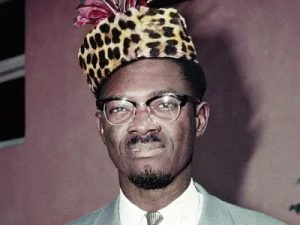
Photo: Patrice Lumumba (Source: Britannica)
In essence, the task of questioning specific inherited legacies was shirked by this elite, who were the beneficiaries of the structures and powers that independence created. Consequently, political, economic, social, epistemic, and ontological relics systematically institutionalized by the European colonialists in their heydays were left unquestioned and, by necessary implications, untouched or modified. On the strength of the above, scholars are united in their shared conviction that the many problems besetting the African continent trace their common ancestry to this. This is underscored by the thinking that nothing is innocent in the general scheme of things. For example, political systems are complicit in reproducing specific ideas and ideals running through the overall philosophical foundations that conceived them.
That way, the inherited Eurocentric political systems are expected to produce a mindset within the paradigm of such political ideology. This explains why Africans continue gravitating towards the European political model and their twin American-centered ones. In the same vein, the school, which is the center for producing knowledge and distributing it, was equally inherited. As such, it operated without subjecting expertise and ideas to sociological tests. Such tests, scholars argue, would have enabled humans to understand its limitations and boundaries, especially as it relates to the effective modeling of critical minds and mindsets instrumental to genuine developments in these colonies.
Instead of becoming the ground where the ex-colonized population internalizes ideas and values necessary for progress, the school is now a plane where indoctrination of unusual magnitude occurs without check. This reality makes it possible for the Africans to be molded by African instructors, using the systems inherited from the earlier colonial imperialists. The implications are their grooming in a Eurocentric way. The continuation of such practices has, therefore, brought about the ruination of the reputation of indigenous values and cultures, deactivating them from being very present in the business of emancipation and development. Thus, the failure to interrogate established systems inherited during colonialism creates a distraction that could cost African minds more than they can imagine in the long run. Unwittingly, the unapologetic repudiation of African values perpetuated during the colonial era is now being reproduced by Africans themselves in utter disregard for the dangers inherent in that.
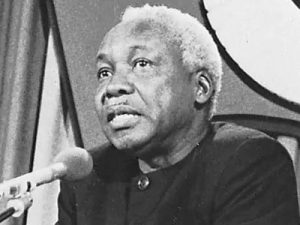
Photo: Julius Nyerere (Source: Britannica)
When one subjects the end product of colonization and coloniality to a thorough examination, one quickly sees that it has been effectively deployed to drive three significant things in the lives of the marginalized community who are at the bottom end. These are realized as the coloniality of being, coloniality of power, and coloniality of knowledge. The coloniality of being begins with the deployment of universalist fundamentals to capture people without their consent in the real sense of the word. Consider, for example, that the modern human being is measured from the Eurocentric lens, conditioning them to view humans only from a specific angle that upholds contradictory ideals. Unless such is protested, they will continue to experience derogation from their human essence in so far as an accommodation of only the concept of “being” as perceived by the popular universalist interpretation is conceived. The postcolonial African human who does not factor others into their engagements has, therefore, attracted the concept of “being” from another cultural frame and, by that conditioning, will be unaware of the departure of their ideological backgrounds from the ones identified by their society. Except if the indigenous concept of “being” follows that description beforehand, the “coloniality of being” therefore remains indisputable. This is not restricted to them alone; there is also the coloniality of knowledge. The understanding of being has been noted to vary across different human cultures. Therefore, they should be emphasized concerning the experience associated with a specific group.
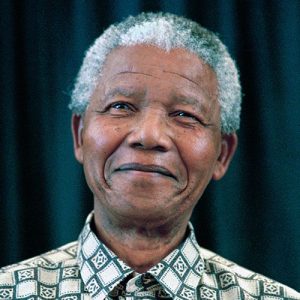
Photo: Nelson Mandela (Source: Biography)
Coloniality, in this way, accounts for numerous things that are not within the capacity of postcolonial theory to explain. I take this explanation further to say that postcolonialism as a response, reaction, and resistance to hegemonic epistemic traditions of the European world, which began and ended before the conferment of independence on the colonized peoples, cannot necessarily explain the situation of colonization, which has continued to manifest itself even after the physical termination of the colonial imperialists from the power bases of different African countries. Consider, for example, the waves of independence in the 1960s that did not get to some settler colonies, including but not limited to South Africa. In that way, postcolonial theory and its tenets of socio-academic discourse cannot always address the problems triggered by such an occurrence. Explaining such conditions demands a different academic theory, and this remains one of the areas of dominance that decoloniality has emerged to offer answers to. If such countries were not considered independent when most African countries enjoyed theirs, postcolonial conversations might not always apply to them, for they suffered extensive problems and extreme oppression which complicate their situations, as contended by Professors Sabelo Ndlovu, Walter Mignolo, and Nelson Maldonado-Torres. They did not have power or control over their consumption of epistemic and ontological productions. By that condition, they were bound to experience the same problems that necessitated coloniality of power, being, and even knowledge.
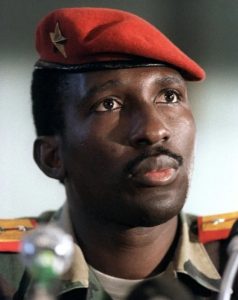
Photo: Thomas Sankara (Source: Medium)
It remains indisputable, too, that the power matrix that amplified imperialist arguments is the same thing that still appears in operation in varying dimensions across various places today. The majority of Francophone African countries were forced to sign a colonial pact that further tied them under the serial dominance of their ‘ex-colonial’ imperialists. This situation crystallized into the progressive dehumanization of Africans through the importation of systems and epistemic identity from the European world. The French Africans would, therefore, have to undergo systemic damage since their ontological identity has been critically impugned. For such a category of ex-colonized individuals, we cannot talk about resistance to colonial ideas in postcolonial times, as that would mean they are challenging existing problems without offering the necessary solutions to liberate them. To that end, the reincarnation of their pre-European cultures can be possible under the covers of decoloniality as they need to rediscover themselves on all fronts. The quest to become actual humans who are not exclusively molded under the influence of Western culture and the imperative of change that will guarantee the reformulation of their epistemic traditions, heritages, and systems are made possible in decoloniality discourses. Scholars have, therefore, remained consistent in their position that decoloniality helps bring emancipatory potentials to otherwise belabored groups of people who have experienced different layers of catastrophic treatments under the systems and practices of coloniality.

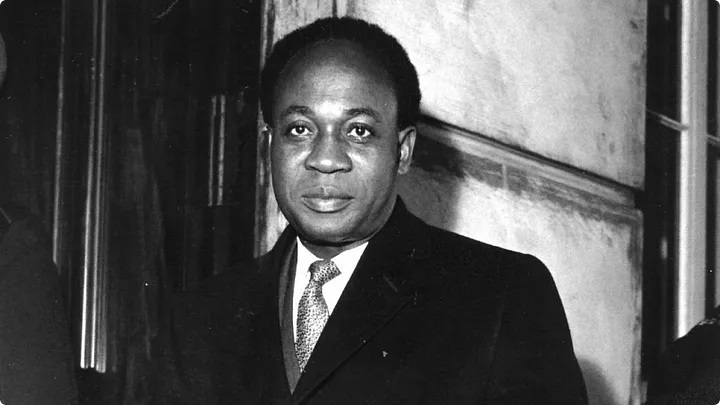












You must be logged in to post a comment.